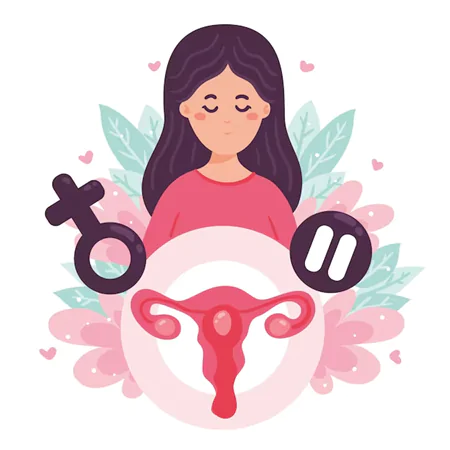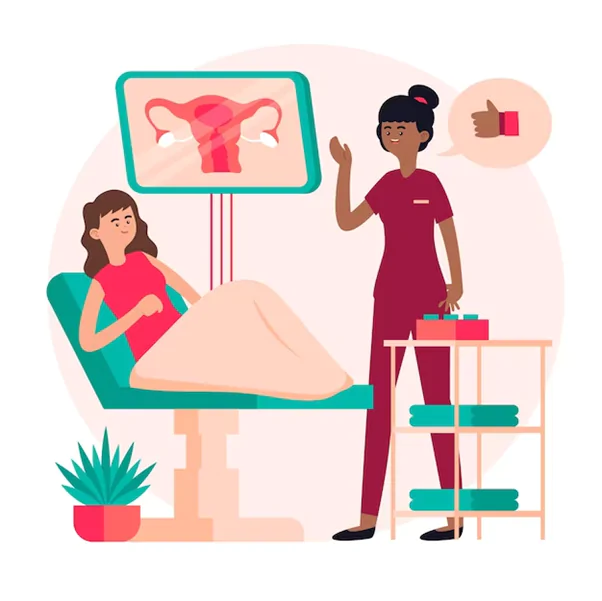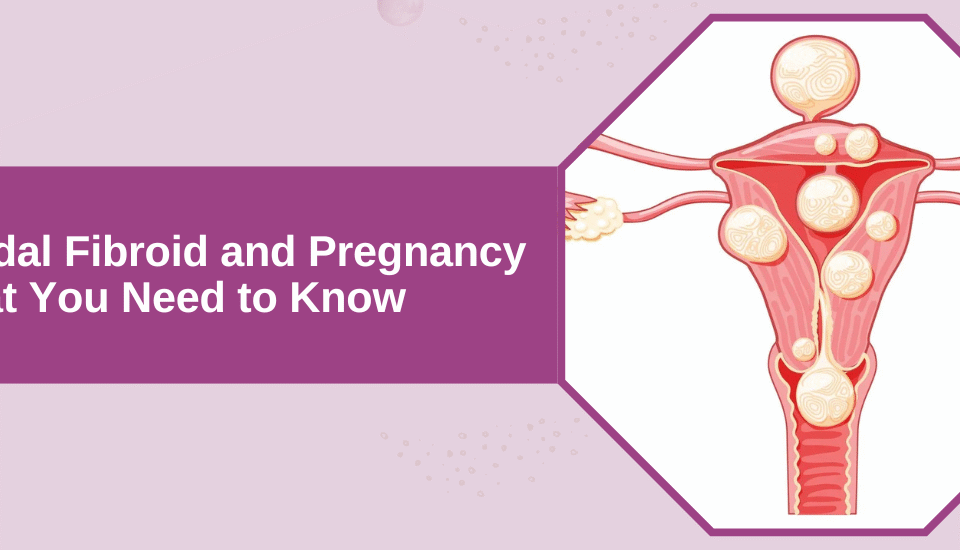- Have any questions?
- +91-98717 17305
- babiesandus12@gmail.com
Understanding Cervical Cancer After Pregnancy
Conceiving Hope: Turner Syndrome and Infertility
January 12, 2024
What to Do 3 Months after Miscarriage When You’re Still Not Pregnant
March 5, 2024Overview
Cervical Cancer After Pregnancy is a health issue that, while uncommon, requires attention and awareness. This condition presents unique challenges and concerns for new mothers. Understanding the relationship between pregnancy and cervical cancer is crucial for early detection and effective management. It’s not common, but it’s important to be aware of it.
At Bloom Clinic in Mumbai, we’re experts in treating cervical cancer after pregnancy. Our skilled doctors lead a caring team dedicated to offering top-notch IVF treatment in Mumbai and understanding support. We know how pregnancy can change a woman’s body and possibly impact her cervical health.
Our experts focus on these changes to tailor the best treatment for each woman. We treat every case based on individual health needs, using a variety of treatments. Our approach is always kind and understanding. Many women have found hope and healing from cervical cancer after childbirth with us.
For personalized, long-term care, book an appointment with specialists at Bloom Clinics in Mumbai.

Introduction to Cervical Cancer After Pregnancy
Cervical cancer during pregnancy is rare, but it’s the most common gynecological cancer found at this time. About 1% to 3% of cervical cancer cases are diagnosed in pregnant or postpartum women. Luckily, regular check-ups during pregnancy often help catch it early.
After pregnancy, cervical cancer is still rare but important to know about. It affects the cervix, near the womb. The chance of getting cervical cancer while pregnant is low, about 1 in 2,200. But, being aware is key for new moms. It’s about staying alert and talking to doctors if there are any concerns or symptoms, to keep healthy after having a baby.

Cervical Cancer and Pregnancy: Understanding the Risks and Changes
When a woman is pregnant, her body goes through many changes. These changes can affect her risk of getting cervical cancer, but it’s important to know that this is still quite rare.
Get special help just for you! Make an appointment with our experts in Mumbai!
Pregnancy can influence cervical cancer risk in several ways, such as changes in hormonal levels and immune system response, but did you know it also impacts how the cervix is screened and monitored during this time?
How Pregnancy Affects Cervical Cancer Risk
Being pregnant doesn’t mean a woman will get cervical cancer. But, the changes happening in her body during this time can sometimes affect her cervix. The cervix is the lower part of the womb that opens into the vagina. If a woman already has some unhealthy cells in her cervix, these changes during pregnancy might make these cells grow more than usual.
However, this doesn’t happen very often.

Hormonal Changes During Pregnancy and Cervical Cells
During pregnancy, a woman’s body produces more hormones like estrogen and progesterone to support the pregnancy. These hormones can cause cells in the cervix to change, which is usually normal and not a concern. However, if there are already abnormal cells in the cervix, these hormones might cause them to grow more.
It’s important for pregnant women to discuss with their doctors about any necessary tests or check-ups. These can help ensure that the cervix is healthy.
Remember, getting cervical cancer during pregnancy is rare, but being careful and checking in with a doctor is a good idea for staying healthy.

Cervical Cancer Screening Guidelines After Pregnancy
After having a baby, it’s important for women to get checked for cervical cancer. This is because the body goes through a lot of changes during and after pregnancy, and it’s good to make sure everything is okay.
Here’s what women should know about these check-ups:
When to Start Screening: Usually, it’s a good idea to start these screenings again after about 6 to 12 weeks post-delivery. This gives the body some time to get back to normal after the baby is born.
Types of Tests: The main test used is called a Pap smear or Pap test. This test checks for any unhealthy cells in the cervix. Another test is the HPV (human papillomavirus) test, which can find the virus that might cause these cell changes.
How Often to Get Screened: How often a woman should get these tests depends on her age, her health history, and what her doctor suggests. Usually, doctors recommend having a Pap test every 3 years. If a woman needs an HPV test too, she might have it every 5 years.
Special Cases: If a woman had any problems with her cervix before or during pregnancy, or if she’s had cervical cancer or precancer in the past, she might need to be checked more often. Her doctor will tell her what’s best.
After pregnancy, watch for symptoms like unusual bleeding, pain during intercourse, or persistent pelvic pain, which can be signs of cervical cancer.
Symptoms of Cervical Cancer to Watch Out for After Pregnancy
After having a baby, it’s good for women to be aware of the signs of cervical cancer. Knowing what to look out for can help catch any problems early. Here are some symptoms that might need a doctor’s check:
| Symptom | Description |
Unusual Bleeding | Bleeding between periods, after sex, or any unusual bleeding for you. |
Strange Discharge | Changes in vaginal discharge, such as increased amount, bad smell, or blood. |
Pain in the Pelvis | Persistent pain in the lower belly or pelvis area. |
Pain During Sex | Pain during sex that wasn’t there before, possibly linked to female infertility issues. |
Changes in Bathroom Habits | Pain when peeing or changes in bowel movements. |
Remember, having these symptoms doesn’t always mean it’s cervical cancer. But, it’s always better to be safe and talk to a doctor if you notice anything that feels off. They can help figure out what’s going on and what to do next.
Receive personalized support from our team in Mumbai! Book your appointment now at!
Treatment Options for Cervical Cancer After Pregnancy

If a woman is diagnosed with cervical cancer after childbirth, there are several ways to treat it. The kind of treatment she gets will depend on how much the cancer has grown and her overall health.
Here’s a brief look at the treatment options:
Surgery: This might mean removing part of the cervix (called a cone biopsy) or, in more advanced cases, removing the uterus (hysterectomy). The doctor will decide what’s needed based on the cancer.
Radiation Therapy: This uses high-energy rays (like X-rays) to kill cancer cells. It can be used alone or with surgery.
Chemotherapy: This treatment uses special medicines to shrink or kill cancer cells. It’s often used with radiation therapy.
Targeted Therapy: These are newer medicines that target specific parts of cancer cells. They can be used along with chemotherapy.
Follow-up Care: After treatment, regular check-ups are really important to make sure the cancer hasn’t come back and to check on the woman’s overall health.
The doctor will talk with the woman about the best treatment for her. They’ll consider things like her age, whether she wants to have more children, and other health factors. The goal is to choose the best treatment to take care of the cancer while also thinking about the woman’s overall health and future.
Conclusion
Facing cervical cancer after childbirth is challenging, but with good treatments and support, there’s hope. Regular check-ups, knowing symptoms, and personalized advice from doctors are crucial. Stay informed, watch for symptoms, and maintain open communication with your doctor for the best chance of early detection and treatment.
References:
https://pubmed.ncbi.nlm.nih.gov/10831976/
FAQs
Can I get pregnant if I have cervical cancer?
Pregnancy with cervical cancer depends on various factors, including the stage and treatment. Consultation with a specialist is essential for personalized advice.
Can pregnancy cause abnormal cells on my cervix?
While pregnancy itself doesn’t cause abnormal cells, it can impact existing cervical conditions. Regular screenings and monitoring are important.



